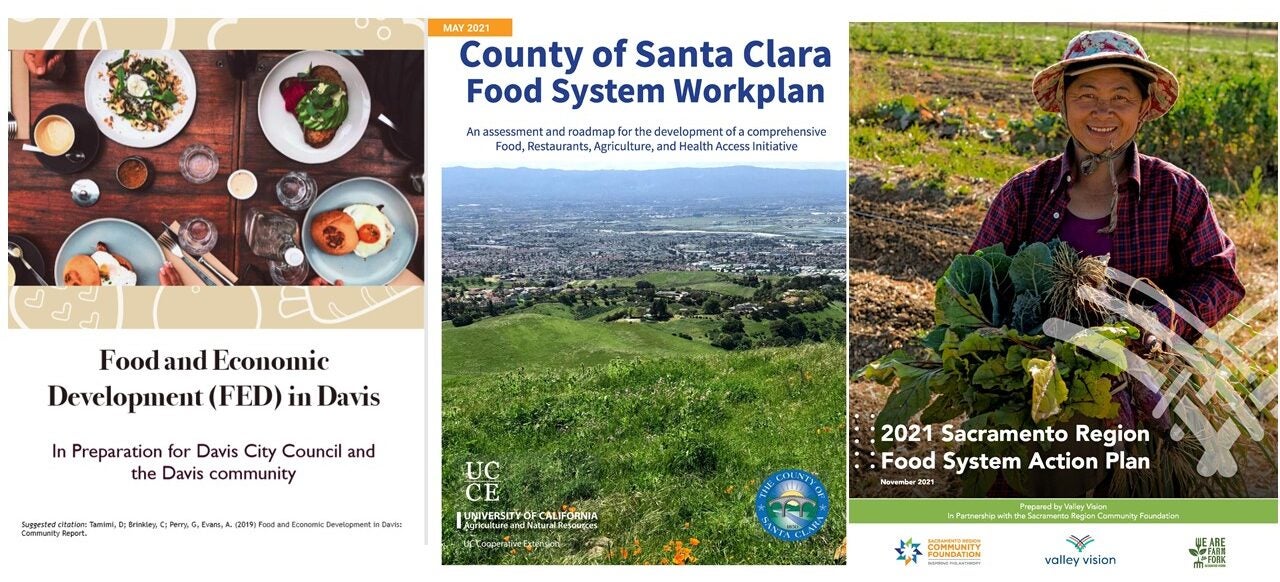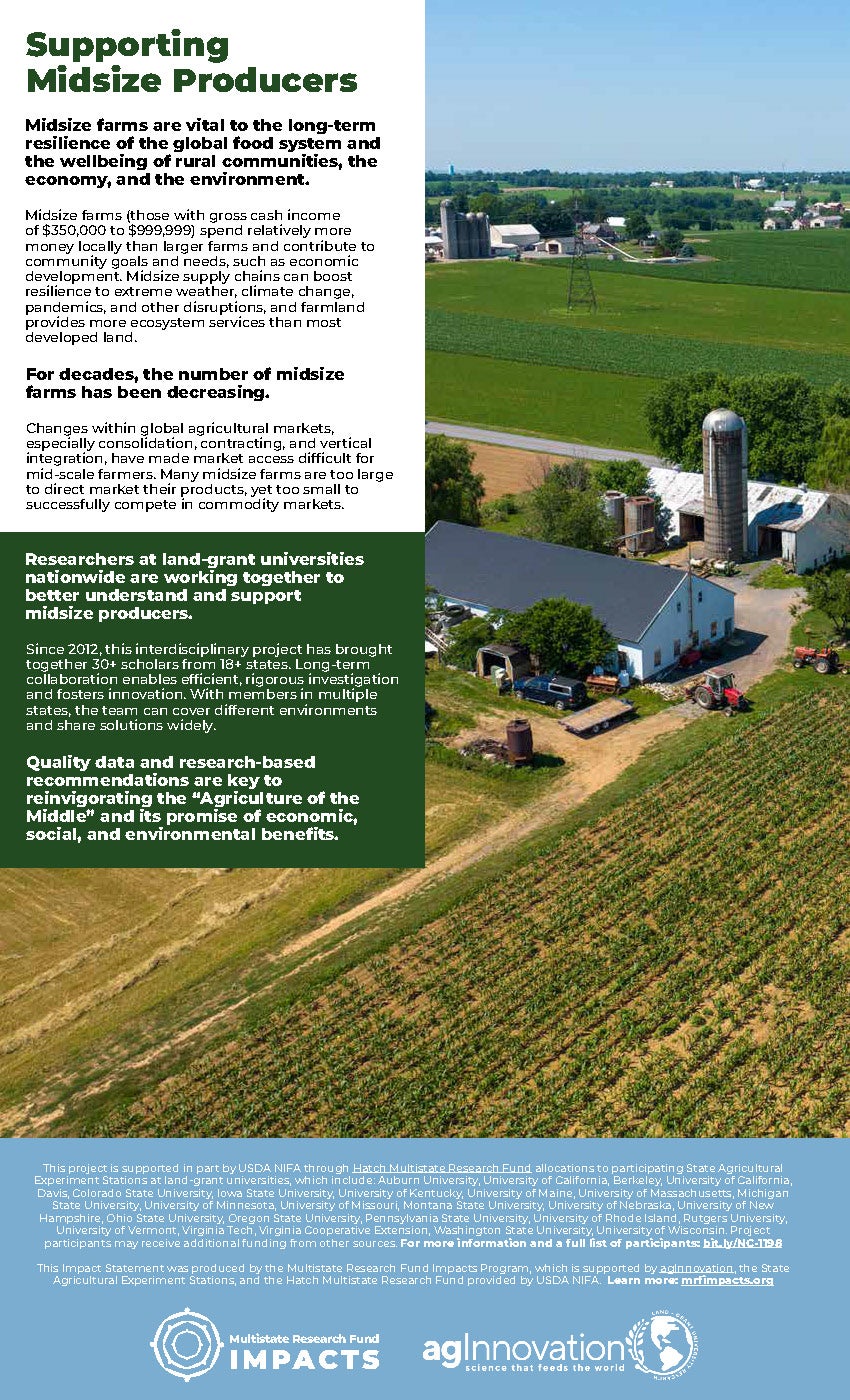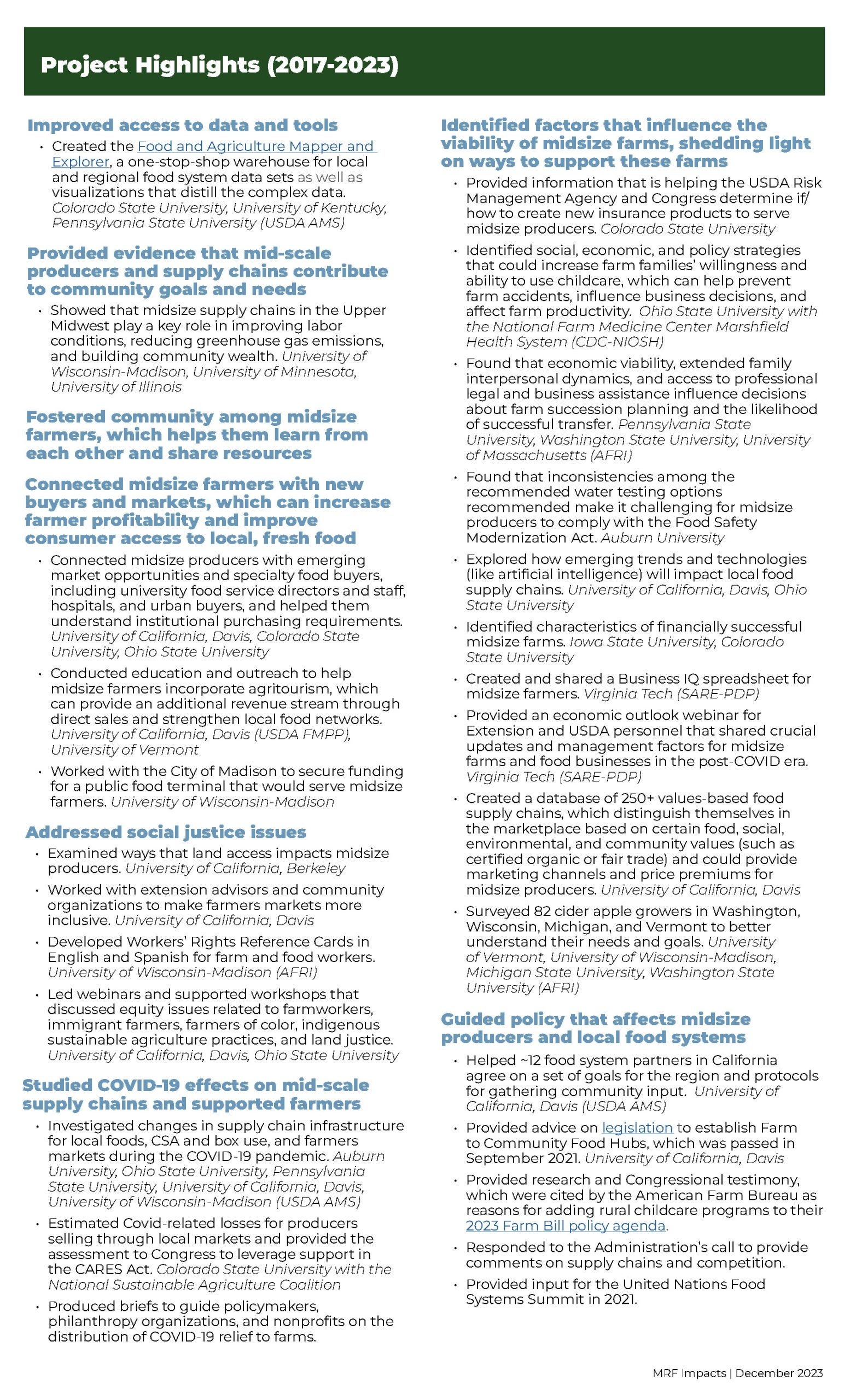Our community food system guides aim to highlight the transparent market ties within local food systems. Many farms connect directly with their communities at farmers’ markets and form relationships with local restaurants and institutions committed to supporting the community’s combined demands for a healthy diet, healthy soils, equitable employment, and sustainable development patterns. Transparent connections help reinforce community support for resilient farming practices, building a more just food system that meets the needs of ecosystems, farmers, farm workers, and consumers.

The California county-level community food system guides are produced in partnership with the California Agriculture and Natural Resources, Community Alliance with Family Farmers, the Edible Schoolyard Project, and the California Alliance of Farmers Markets

With additional partnership on the Sacramento, El Dorado and Placer guides from Valley Vision and generous funding support from the Sacramento Region Community Foundation
Find your county here!
El Dorado, Los Angeles, Placer, Sacramento, San Francisco, Santa Clara, Shasta, Nevada, Yolo
More to come!

This research has helped inform the following reports:
- USDA Midsize Producer Impact Statement (2023)
- Santa Clara County Food System Workplan (2021)
- Targeting Los Angeles food and agricultural workers for COVID-19 vaccinations
- Sacramento Regional Food System Action Plan (2021)
- City of Davis Food and Economic Development Plan (2020)
Methods: The data we collect represent general trends in local, transparent food supply chains. To gather information on fresh food sales and donations, the research team conducted a webscrape visiting every farm and market webpage to note fresh food sales and donations. Farms and markets were included if they listed their direct sales and donations. Many farms sell through roadside stands. Our data collection would not have picked up these ties, or instances where farms sell through a broker who then sells on to institutions, such as cafeterias.
More to come! Please leave us feedback
Research Publications:
- Stein, A. and Brinkley, C. (2023). Farm to Food Bank: Exploring the Ties between Local Food Producers and Charitable Food Assistance. Rural Sociology. https://doi.org/10.1111/ruso.12489
- Darwalla, T.; Fuchs-Chesney, J. Raj, S. Brinkley, C. (2022) All Roads Lead to the Farmers Market?: Using Network Analysis to measure the orientation and central actors in a Community Food System through a Case Comparison of Yolo and Sacramento County, California. Journal of Agriculture and Human Values. https://doi.org/10.1007/s10460-022-10345-y
- Raj, S; Roodbar, S. Brinkley, C. (2022) Food Security and Climate Change: Differences in impacts and adaptation strategies for rural communities in the Global South and North. Frontiers in Sustainable Food Systems
- Brinkley, C., Manser, G. M., & Pesci, S. (2021). Growing pains in local food systems: a longitudinal social network analysis on local food marketing in Baltimore County, Maryland and Chester County, Pennsylvania. Journal of Agriculture and Human Values, 1-17.
- Pesci, S., & Brinkley, C. (2021). Can a Farm-to-Table restaurant bring about change in the food system?: A case study of Chez Panisse. Food, Culture & Society, 1-22.
- Francis, K., & Brinkley, C. (2020). Street Food Vending as a Public Health Intervention. Californian Journal of Health Promotion, 18 (1), 1-16.
- Brinkley, C., Glennie, C., Chrisinger, B., & Flores, J. (2019). If you Build it with them, they will come: What makes a supermarket intervention successful in a food desert? Journal of Public Affairs
- Brinkley, C. (2018). The Small World of the Alternative Food Network. Sustainability, 10 (8), 1-19.
- Brinkley, C. (2018) High Rugosity Cities: the geographic, economic and regulatory pathology of America’s most non-concentric urban areas. Land Use Policy.
- Brinkley, C. (2017) Visualizing the social and geographical embeddedness of local food systems. Journal of Rural Studies, 54, 314-325.
- Brinkley, C.; Raj, S; Horst, M. (2017) Cultivating Food Deserts. Journal of Built Environment 43(3), 328-342.
- Vaarst, M., Escudero, A. G., Chappell, M. J., Brinkley, C., Nijbroek, R., Arraes, N. A., … & Halberg, N. (2017). Exploring the concept of agroecological food systems in a city-region context. Agroecology and Sustainable Food Systems.
- Vitiello, D and Brinkley, C (2014). “Hidden History of Food System Planning” Journal of Planning History. 13(2): 91112.
- Brinkley, C, Chrisinger, B, and Hillier, A. (2013). Tradition of Healthy Food Access in Low-income Neighborhoods: Price and Variety of Produce Vending Compared to Conventional Retail, Journal of Agriculture Food Systems and Community Development. 41(11): 155169.
- Brinkley, C. (2013): Avenues into Food Planning: A Review of Scholarly Food System Research, International Planning Studies . 18(2): 243266.
- Brinkley, C., Birch, E., & Keating, A. (2013). Feeding cities: Charting a research and practice agenda toward food security. Journal of Agriculture, Planning, Food Systems and Community Development. 34(8): 8187.


As part of the community food systems research, our team is focused on local municipal codes that legalize or prohibit small-scale growers and distributors. Globally, street food vending is a low-cost method of distributing food. Our research documents the promise of and barriers to street food vending with an emphasis on public health impacts. In addition, Dr. Brinkley engages locally and statewide in efforts to evaluate the practice of street food vending on pubilc health by providing supportive data, studies, and public commentary.
- See: “Growing calls to legalize U.S. street vendors post pandemic” Thomas Reuters Foundation, 2021
We are honored to work in community with the Los Angeles Street Food Vending Campaign, Inclusive Action, and the Institute for Justice, and together, our research helped influence the passage of SB 946 (2018) in California to legalize street food vending state-wide. Community organizing in the City of Davis helped to create the Davis Food and Economic Development plan (2018).
- “Repackaging Food Ideas: Davis sets ambitious goals for the future of its food system” Comstock’s, 2020

